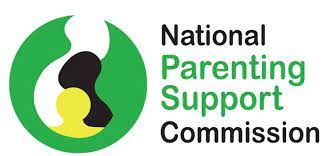It may at times be difficult to know what to expect of children as they grow and develop. Sometimes their expectations can be unrealistic for the children’s ages. For example, a toddler cannot sit quietly for a long time; toddlers are natural movers. This section aims to help mothers and fathers better understand what to expect from their girls and boys at different stages and how best to encourage them.
Pregnancy and Babies
YOUR RELATIONSHIP WITH EACH CHILD BEGINS EVEN BEFORE THE CHILD IS BORN.
Within the first three months of pregnancy, the baby’s basic brain structure is beginning to be formed. The unborn child is influenced by many decisions his or her parents make during pregnancy. If the baby is wanted and loved before birth, the parents are likely to look forward to the birth and greet the baby with warmth and happiness. If the pregnancy is unplanned or unwanted, the parents may greet the child with ambivalent feelings or even rejection.
Conditions during pregnancy can set the stage for healthy parent-child relationships and shape the emotional climate of the world that the baby enters at birth. These conditions include:
- The amount of support mother has from the child’s father, other family members and friends
- Mother’s level of stress
- The family’s finances and situation
- The community environment
- Mother’s state of health, diet and nutrition
Young babies may cry a lot for a number of reasons and in different ways. This is normal and may be due to hunger, and/or needing to be changed. They do not yet have words to communicate how they feel or what they need.
The long hours and other demands of baby care can make both mothers and fathers very tired and sometimes frustrated. For example, when a baby won’t stop crying, a parent might feel like hitting or shaking the baby. This won’t stop the crying of course. Hitting or shaking a baby can:
- Cause serious injury to the brain or spinal cord;
- Make the baby afraid of you;
- Even kill the baby.
A crying baby needs to be held and comforted, and know that you are there. You cannot spoil a baby with caring attention. But if you are unable to calm your baby—and maybe yourself—be sure to ask for help from your partner, other family members, friends, a doctor, or other community resources. A MOTHER OR FATHER WHO SOMETIMES GETS TIRED AND FRUSTRATED IS A NORMAL PARENT, NOT A BAD PARENT.
Toddlers & Pre-Schoolers
All children want to learn more and more as they grow. They are curious and ask lots of questions! They learn new words and want to use them. However, they are still figuring out how things work around them. They cannot answer all their questions on their own.
Children at this age need reassurance and support as they learn what is real from what is imagined and to understand their own feelings. When parents and other family members listen and respect their fears and feelings, they will feel more secure and confident–which gives them the foundation for all future learning.
They can securely turn to their parents for answers or help with school work and hugs and comfort.
School-aged Children & Pre-teens (ages 5-12)
By age five or six most children start primary school, and their world changes. They must manage on their own for longer periods and in larger groups outside their family members. They have to learn to get along with many new children and also to meet the expectations of new adults. They learn to follow schedules and routines that differ from those at home.
By the end of this period, most children are beginning to experience the changes in their bodies and feelings that come with the onset of puberty. They often become more self-conscious, and acceptance by their peers becomes more important. Parents’ assurance and encouragement at this stage help these pre-teens become readier for their growing independence.
Teenagers
Parents are the most important role models for their children throughout life. This does not change as a teenager shapes his identity towards becoming a responsible adult.
Teens between 13 and 15 are often testing their independence, then reverting to being children. Friends are becoming more important and help teens define a sense of self. Hormones and body changes contribute to mood swings and self-consciousness. Teens are very self-involved. Their growing independence can sometimes lead to challenging parental authority and conflicts.
Between ages 16 to 18, older teens make more of their own choices and decisions, which continue to shape how they mature and choose an eventual life path towards work, further education, or other options. Sexual awareness and experimentation with their own sexuality mark this period, which can challenge parents’ own values and life choices.
If parents have maintained positive communication with their children from very young, communication with teens during their transition to adulthood much easier.
To help you stay connected with your teen during these years, here are a few tips.
- Keep communication channels open
- Try to speak to them as a young adult rather than as children
- Really listen to what your teen has to say and actively acknowledge their feelings
- Send plenty of strong messages of thanks and appreciation
- Show an interest in what your teenager is doing at school and out of school
- Give them space and privacy
- Gradually allow more independence, with guidance
- Encourage them to share their outside activities with you - e.g football matches, dance recitals, etc.
- Get to know their friends; welcome them to your home and listen to them.
children with special needs
- All children, including those with disabilities, need love, respect, nurturing, and time.
- Every parent is different. But after a diagnosis of disability, it is very common for parent to feel overwhelmed, shocked, sad, worried, guilty - or a combination of all these things.
- There's no 'right' way to feel. Acknowledging your emotions is a healthy thing to do.
- When you're ready, talk to people close to you and seek professinal support and information - for example, from your doctor and guidance counselor.
- It can also help to talk to people who understand what it is like to have a child with additional needs.
- Try to avoid comparing your child with other children. Every child is an individual.
- Celebrate successes and milestones - yours and child's - and focus on positives and progress.
- Your child might be developing differently from other children but will be reaching his/her own goals and milestones along the way. There'll lots of reasons to feel positive.
Adapted from www.raisingchildren.net.au/disability



